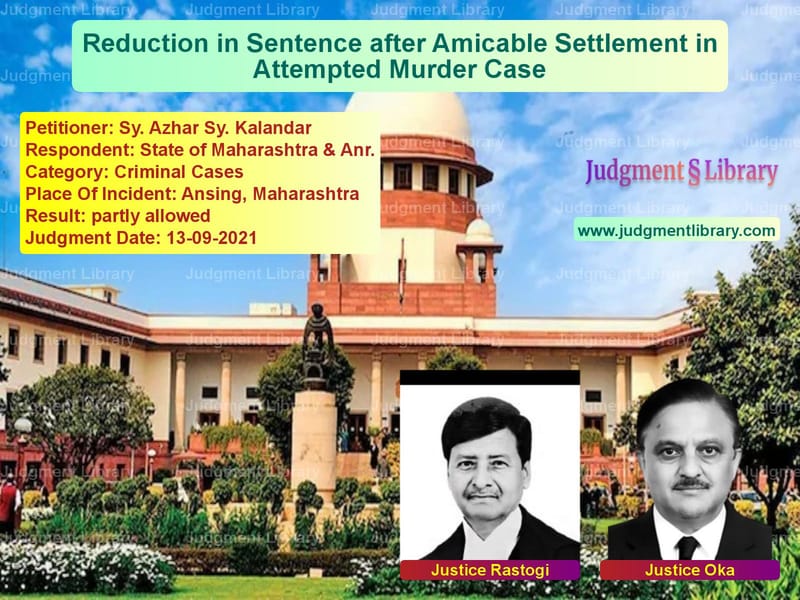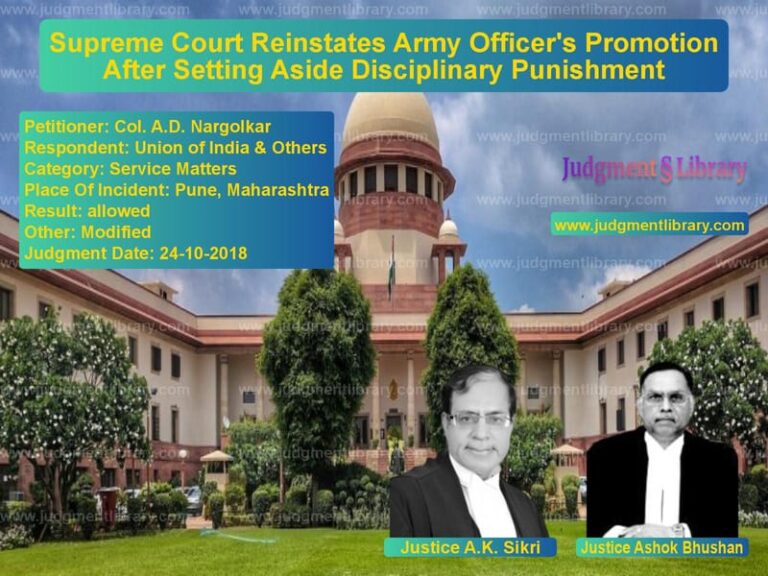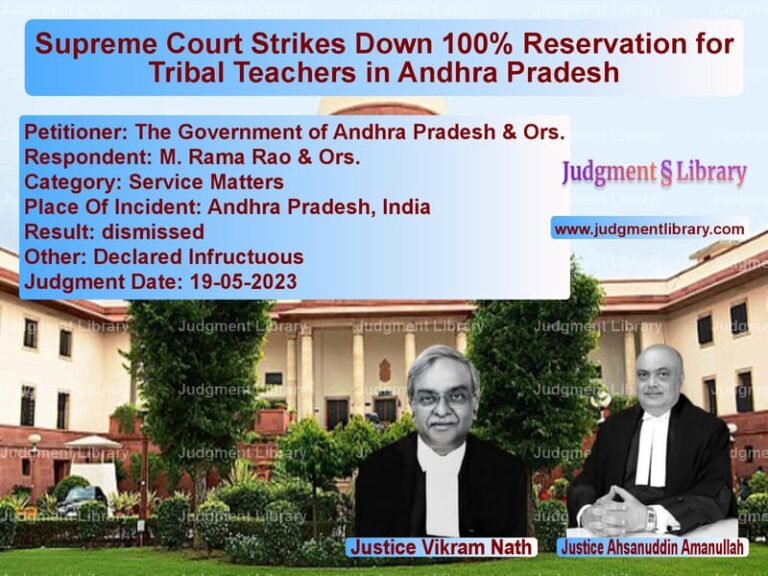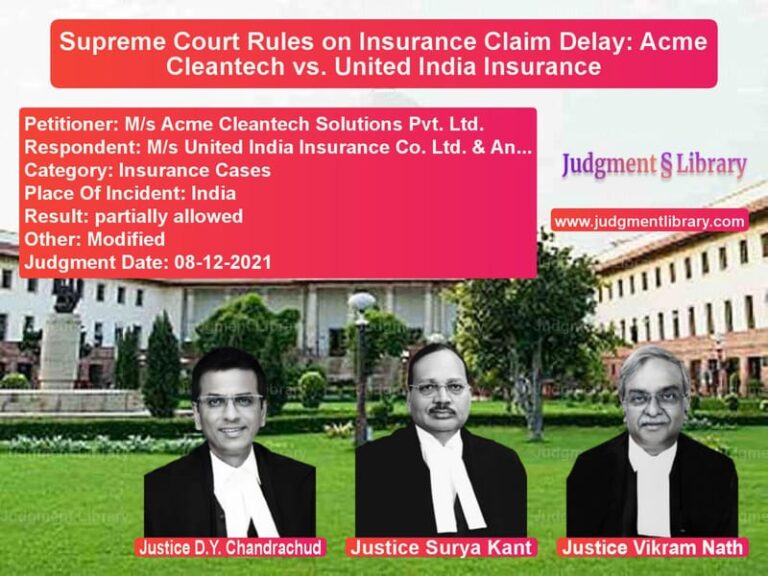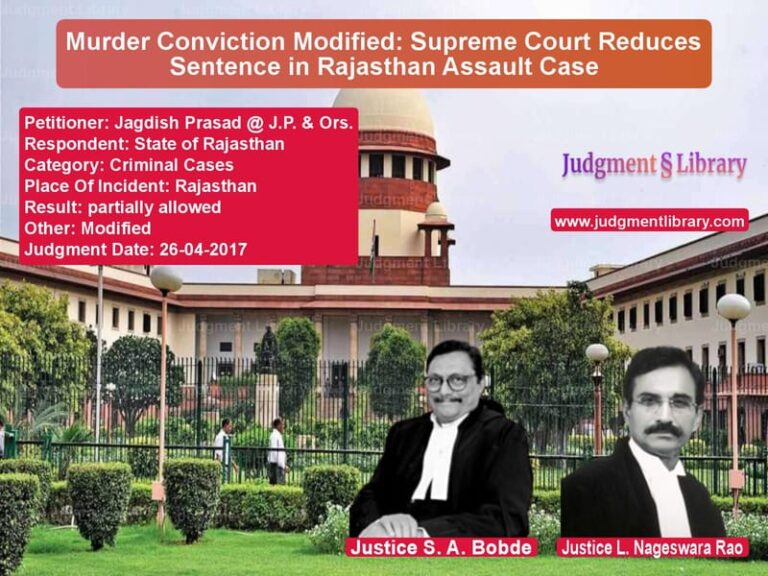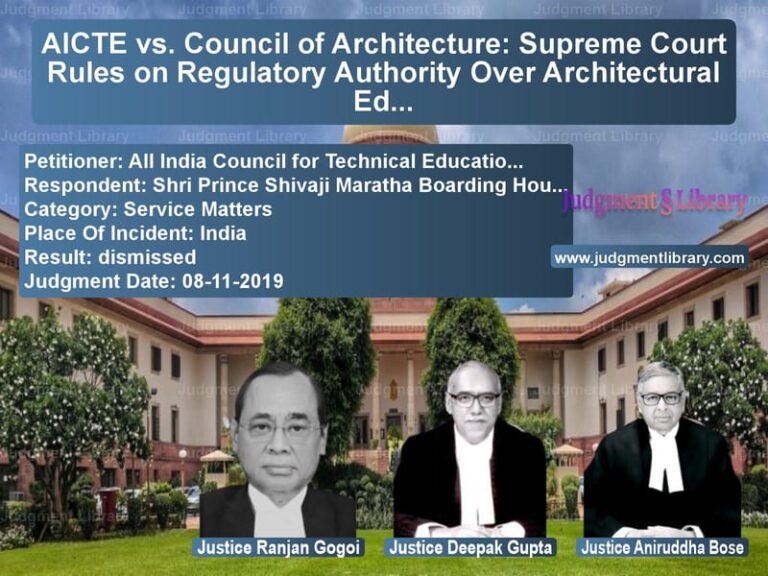Reduction in Sentence after Amicable Settlement in Attempted Murder Case
The case at hand involves an appeal by the appellant, Sy. Azhar Sy. Kalandar, against his conviction under Section 307 of the Indian Penal Code (IPC) for attempting to murder Chintaman Dange, the complainant’s maternal uncle. The incident occurred on May 11, 2016, during a procession in Ansing, Maharashtra. The appellant, along with two associates, stabbed Chintaman Dange with a sharp-edged weapon in a fit of rage due to a prior quarrel over unlawful construction on a religious site. The appellant was convicted for the offence and sentenced to 10 years of rigorous imprisonment by the High Court of Bombay.
The appellant’s conviction and sentence were challenged in the Supreme Court, leading to the present appeal. The Court considered both legal arguments and the circumstances surrounding the case, including the settlement between the victim and the appellant. It was argued that the parties had reconciled after the unfortunate incident, with the victim voluntarily accepting the appellant’s apology, considering the passage of time and his age at the time of the crime. This mutual understanding led to a reconsideration of the sentence imposed.
Petitioner’s Argument:
The appellant’s legal team contended that the sentence was too harsh given the circumstances of the reconciliation between the appellant and the victim. The defense highlighted the fact that both parties were now residing peacefully in the same village, and the victim had forgiven the appellant after receiving an apology. The defense counsel argued that the court should take these factors into account and reduce the sentence imposed on the appellant.
Respondent’s Argument:
The prosecution, while acknowledging the settlement, argued that the crime committed by the appellant was serious, as it involved an attempt to take someone’s life. The prosecution emphasized that such offenses should be treated with the utmost seriousness, even if the victim had forgiven the appellant. It was contended that the sentence should reflect the gravity of the offense, despite the subsequent peace between the parties.
Court’s Judgment:
The Court, after hearing both parties and reviewing the case, observed that the parties had mutually settled their dispute, with the victim accepting the appellant’s apology and the appellant taking responsibility for his actions. Citing past precedents, including Murali vs. State and Ram Pujan & Others vs. State of U.P., the Court noted that it had intervened in similar cases to reduce sentences, even for non-compoundable offenses, when the parties had reconciled. The Court took into account the age of the appellant, the nature of the injury, the time elapsed since the incident, and the victim’s forgiveness.
The judgment also referred to previous decisions, such as Ishwar Singh vs. State of M.P., where the Court had reduced sentences in cases where a settlement had been reached between the parties involved in the crime. The Court emphasized that the settlement was voluntary and not coerced, and thus it could take a sympathetic view of the appellant’s case.
After considering the facts, the Court decided to reduce the appellant’s sentence from 10 years to 5 years of rigorous imprisonment. Additionally, the appellant was required to pay a fine of Rs. 10,000, with a further 3-month imprisonment in case of non-payment. The sentence reduction was made in light of the settlement between the parties and the mitigating circumstances presented during the trial.
Key Arguments by the Court:
The most significant verbal arguments in this case revolved around the reconciliation between the appellant and the victim, the apology offered by the appellant, and the fact that the parties had settled their dispute amicably. The Court noted that the age of the appellant, the victim’s acceptance of the apology, and the absence of coercion in the settlement played a crucial role in reducing the sentence. The Court also referred to its previous judgments where similar settlements had led to sentence reductions, highlighting the importance of reconciliation in certain criminal cases.
Conclusion:
In conclusion, the Supreme Court partly allowed the appellant’s appeal and reduced the quantum of the sentence imposed. The Court’s decision was grounded in the principles of justice and fairness, taking into account the mitigating factors such as the age of the appellant, the reconciliation between the parties, and the voluntary acceptance of the apology by the victim. This case serves as an example of the Court’s willingness to take a sympathetic view in cases where the parties have reconciled and settled their disputes, even in serious non-compoundable offenses.
Petitioner Name: Sy. Azhar Sy. Kalandar.Respondent Name: State of Maharashtra & Anr..Judgment By: Justice Rastogi, Justice Oka.Place Of Incident: Ansing, Maharashtra.Judgment Date: 13-09-2021.
Don’t miss out on the full details! Download the complete judgment in PDF format below and gain valuable insights instantly!
Download Judgment: sy.-azhar-sy.-kaland-vs-state-of-maharashtra-supreme-court-of-india-judgment-dated-13-09-2021.pdf
Directly Download Judgment: Directly download this Judgment
See all petitions in Murder Cases
See all petitions in Bail and Anticipatory Bail
See all petitions in Fraud and Forgery
See all petitions in Theft and Robbery Cases
See all petitions in Custodial Deaths and Police Misconduct
See all petitions in Judgment by Ajay Rastogi
See all petitions in Judgment by Abhay S. Oka
See all petitions in partly allowed
See all petitions in supreme court of India judgments September 2021
See all petitions in 2021 judgments
See all posts in Criminal Cases Category
See all allowed petitions in Criminal Cases Category
See all Dismissed petitions in Criminal Cases Category
See all partially allowed petitions in Criminal Cases Category

